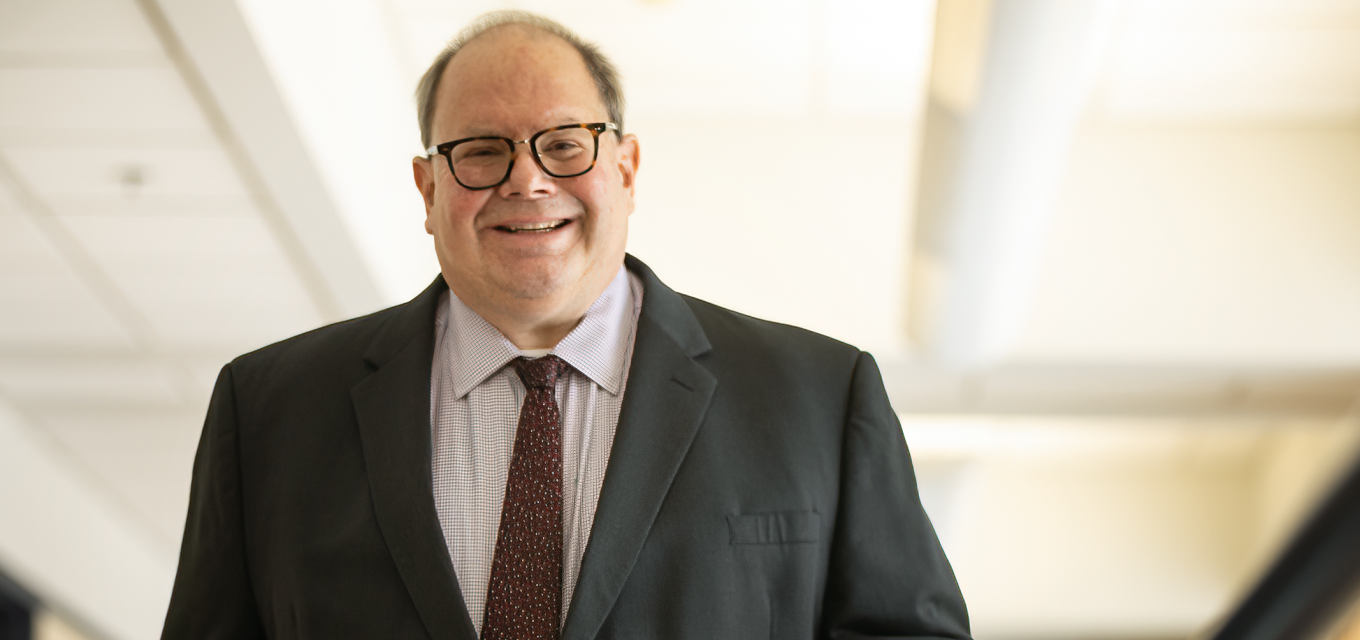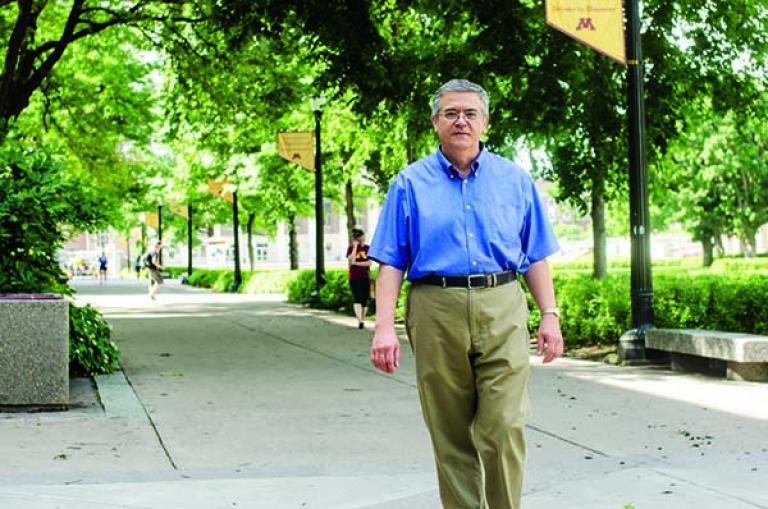2022 Spring / Summer

Working on the workforce
The new Workforce Development and Research Lab brings together experts from diverse fields to solve complicated challenges.
The world of work is in a state of upheaval thanks to many factors, from COVID-19 and the Great Resignation to generational shifts and technological advances like artificial intelligence. The challenges are interconnected and complex, requiring expertise from many disciplines to find solutions.
The college’s new Workforce Development and Research Lab coalesces a multidisciplinary team of experts to tackle emerging workforce issues with novel approaches and partnerships. Together, professors, graduate students, and affiliate partners are pooling their knowledge, talents, and networks to address today’s work-related challenges and the challenges of the future.
School of Social Work Professor John Bricout and Alexandre Ardichvili, an Organizational Leadership, Policy, and Development (OLPD) professor, serve as co-directors. They formally launched the lab in June 2021. It’s still in its early days of getting new projects off the ground, but the intentions of the lab are clear.
“The overall role of the lab is to serve as a platform for new, innovative research in workforce development across civil society, including health care, transportation, nonprofits, and community-based organizations,” Bricout says. “I anticipate that the lab will develop tools and processes for tapping into the factors that support a more diverse, inclusive, and forward-looking workforce.”
Ardichvili sought to create a multidisciplinary lab that reflects the multifaceted fields of workforce and human resource development. “The success of research and applied projects depends on the input and participation of scholars and industry partners with various backgrounds,” Ardichvili says. “The lab will bring together groups of people who will be able to more successfully compete for state and federal research grants than if they were trying to secure this funding alone.”
Overall, Bricout says the lab will have three main domains: ensuring diverse and inclusive workplaces, studying human/machine collaboration on the job, and responding to demographic shifts like the knowledge transfer between generations.
The research potential is vast, Bricout adds. Some pending ideas include investigating the best ways to recruit physicians and other health care professionals to work in rural areas—a potential project with the Medical School’s Medical Education Outcomes Center. Another would focus on workforce issues surrounding connected and autonomous vehicles, in partnership with the University’s Center for Transportation Studies.
The challenges the lab will tackle are as varied as its members’ expertise. Bodong Chen, an associate professor of curriculum and instruction, will contribute his knowledge of learning analytics, perhaps applying it to develop training as people interface with artificial intelligence–based automation. Ken Bartlett, OLPD professor and department chair, lately has focused on uncovering new ways for public transportation agencies to attract, retain, and develop employees.
This multidisciplinary approach—such as bringing in partners from business or engineering—is key to uncovering and removing structural barriers that contribute to workforce challenges, Bartlett says. Another important aspect of the lab will be working with nonprofits, industry associations, and government agencies to shape research from its onset to effectively address their workforce concerns, Bartlett says.
“The issues are so interconnected that you need a different way of thinking about it,” Bartlett adds. “Work has changed, workers have changed, and workforce demands have changed. We need to change how we think about research that develops that future-focused workforce.”
“We always talk about a research/practice gap. The lab can reduce the gap with a focus on improving people’s lives”
OLPD doctoral student Ana Carolina (Carol) Rodriguez belongs to a research team with Ardichvili and Diele Lobo, a doctoral student in conservation sciences. Focused on Serra da Capivara National Park, a World Heritage Site in Brazil, they are examining how entrepreneurship and human resource development can support sustainable development and gender equality. It pairs nicely with Rodriguez’s work, which is centered on the work experiences of parents whose children have disabilities and how organizations can support the parents’ professional development.
“I’m super excited about the lab because there is a focus on actionable research,” Rodriguez says. “We always talk about a research/practice gap. The lab can reduce the gap with a focus on improving people’s lives.”
Lab members share an enthusiasm for opportunities to forge new ground by partnering with people with vastly different expertise. Rodriguez already has seen such benefits by working with an environmental scientist like Lobo. Lab member Quinn Oteman, a social work doctoral student, is excited about potential partnerships with engineers for a project focused on employment and community participation using advanced rehabilitation research training.
“When we start to silo ourselves in our disciplines and schools, innovation is limited. When you start bringing in people from different backgrounds, education, and life experience, then ideas start to unfold,” says Oteman, who has a background in music and special education. “This lab brings together people from different disciplines who normally wouldn’t work together.”

Providing research opportunities to doctoral students like Rodriguez and Oteman is another objective for the lab, Ardichvili says. Students will gain research experience from collaborating with senior lab members and developing and implementing their own studies. Other initiatives like the lab’s student challenge will provide stipend prizes for graduate student teams working on global workforce development issues.
They will receive feedback on their ideas and build connections with faculty members who might work with them on their projects,” Bricout says. “It will help fulfill part of our mission to develop the next generation of workforce researchers.”
-Suzy Frisch